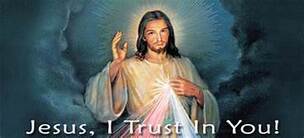I Believe
The first time I heard the words of Thomas called Didymus, "My Lord and my God! (Jn 20:28), was from the lips of my parents after consecration at Mass. As a young child at Mass with my parents, I would often hear them say with faith and gaze on the raised consecrated host, "My Lord and my God!" Since then, I have never failed to make this act of faith at the elevation of Consecrated Host and Chalise at mass. However, this act of faith by Thomas in the Risen Christ flows from a beginning rooted in doubt, hence the term, doubting Thomas. Thomas wanted proof, or is it evidence, that Jesus has indeed risen. Bible says that on the evening of the first day of the week, Jesus appeared to the apostles, who locked themselves up in a room out of fear of the Jews. He showed them his hands and side as proof that it was his resurrected body, and they believed in seeing. Thomas was absent and would not believe the disciples' words unless he saw the mark of the nails in his hands, put his finger into the nail marks, and put his hand in his side; he would not believe (see Jn 20: 19-25 ).
There is a lot of unbelief that attends to the revealed truth of faith in our time. Within and outside the Church are people who will not make an act of faith unless they see, touch, and verify. Some people consider the scientific method of knowing as the only acceptable way of knowing. Many will not believe doctrines of our faith like Real Presence in the Sacred Host unless they can verify the facts behind them. They exclude faith as a way of knowing when faith itself is involved even in scientific methods. Facts do not exclude faith. Faith is always a way of knowing. We do not have to see and observe and experiment to believe in the reality of a claim, especially the mystery of faith.
We believe and exercise faith in the revealed truth about the resurrection of Jesus from the dead without falling into the notion of blind faith. Our faith also has evidence to back it. We are even better off for believing without seeing. We believe based on trust in God's love for us. From the Scripture and Christian living evidence, we know that God is faithful to his promises and cannot deceive. We have to keep faith by nourishing our faith daily in prayers, a meditation on the Scriptures, and acting in faith.
On this Divine Mercy Sunday, we are called to affirm our faith in the Divine Mercy that flows from the side of Jesus on the Cross and the wounds from his risen body. Today, we pray the Divine Mercy and do the required acts of faith to receive a plenary indulgence for all temporary punishments for our sins. God has provided a fountain of mercy in the sacrament of reconciliation. Let us receive it frequently in faith.
In Christ,
Fr. Bernard, OP

 RSS Feed
RSS Feed